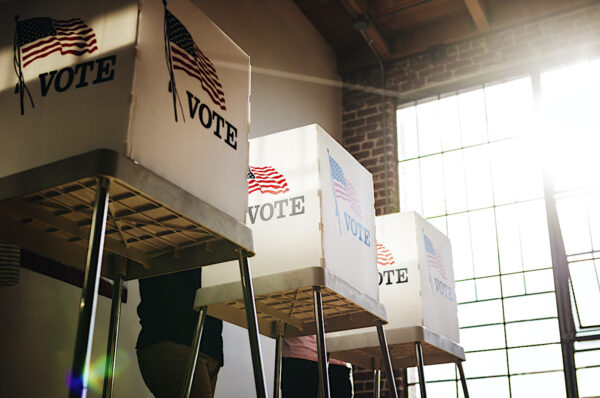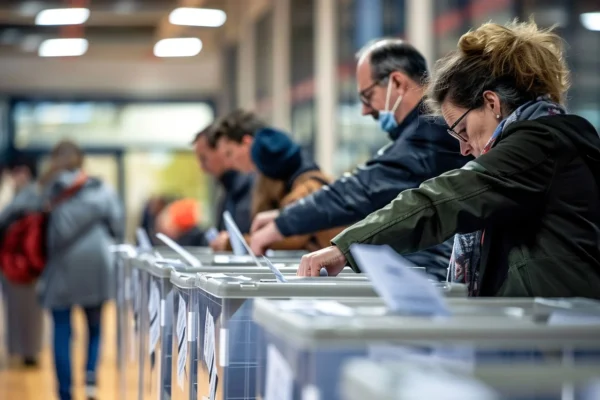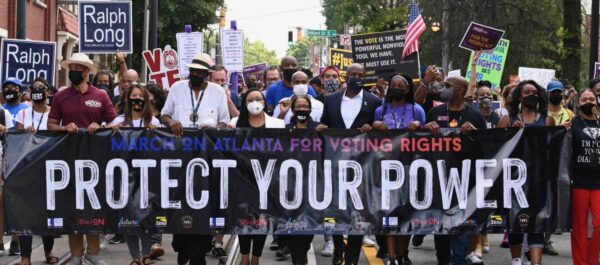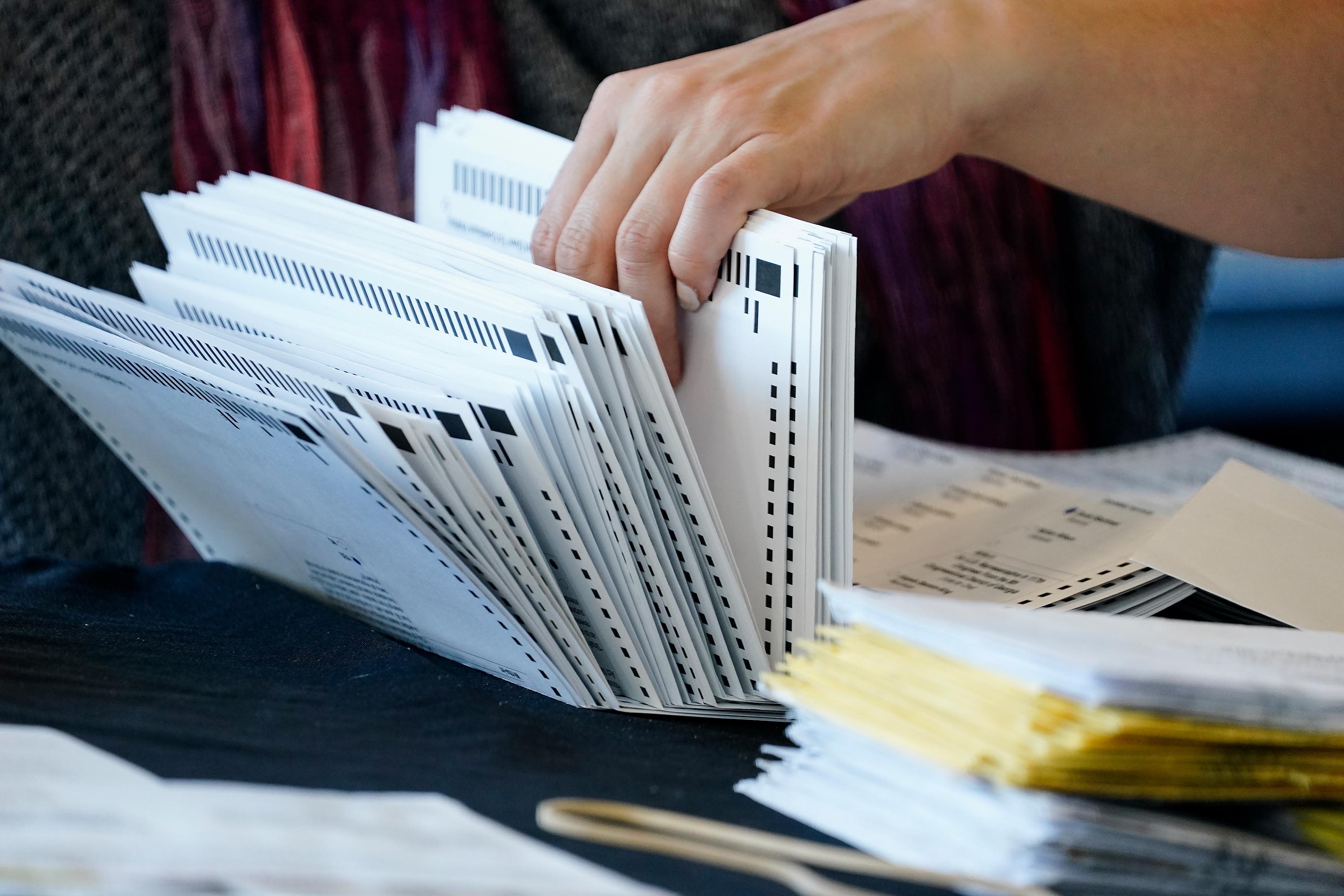Georgia
Eternal Vigilance Action, Inc. v. Georgia
The ļž–” ”∆Ķ and partner organizations have sought to intervene in this case to represent the rights of voters and voting-rights organizations in a case challenging a number of rules passed by the Georgia State Election Board. We challenge a rule that requires that the number of votes cast be hand counted at the polling place prior to the tabulation of votes. This rule risks delay and spoliation of ballots, putting in danger voters‚Äô rights to have their votes count.
Status: Ongoing
View Case
Featured
U.S. Supreme Court
Sep 2023

Criminal Law Reform
McElrath v. Georgia
Does the Double Jeopardy Clause bar an appellate court from reviewing and setting aside a jury’s verdicts of acquittal on the ground that the verdict is inconsistent with the jury’s verdict on other charges?
Georgia
Jun 2020

Disability Rights
Harris v. Georgia Department of Corrections
On October 3, 2018, the ļž–” ”∆Ķ and the ļž–” ”∆Ķ of Georgia, together with National Association of the Deaf and Weil, Gotshal & Manges, LLP, filed a federal lawsuit on behalf of deaf and hard of hearing people incarcerated in prisons supervised by the Georgia Department of Corrections (GDC). The complaint highlights GDC‚Äôs failure to provide incarcerated deaf and hard of hearing people with equally effective communication access to programs, services, and activities, including medical care, telecommunications, and prison programs. Further, due to lack of access to interpreters and other communication accommodations, deaf prisoners are also often unable to explain or defend themselves when GDC takes disciplinary action against them.
All Cases
24 Georgia Cases

Georgia
Sep 2024
Voting Rights
Frazier v. Fulton County Department of Registration and Elections
The ļž–” ”∆Ķ, along with several partner organizations, have intervened in this case to represent the rights of voters and voting-rights organizations in a case that asks a federal court to compel the purge of nearly 2,000 Fulton County, Georgia voters from the state‚Äôs rolls on the eve of a presidential election. The relief that the private plaintiffs seek is presumptively unlawful because this purge would happen within 90 days of a federal election, in violation of the National Voter Registration Act (‚ÄúNVRA‚ÄĚ).
Explore case
Georgia
Sep 2024

Voting Rights
Frazier v. Fulton County Department of Registration and Elections
The ļž–” ”∆Ķ, along with several partner organizations, have intervened in this case to represent the rights of voters and voting-rights organizations in a case that asks a federal court to compel the purge of nearly 2,000 Fulton County, Georgia voters from the state‚Äôs rolls on the eve of a presidential election. The relief that the private plaintiffs seek is presumptively unlawful because this purge would happen within 90 days of a federal election, in violation of the National Voter Registration Act (‚ÄúNVRA‚ÄĚ).

Georgia
Sep 2024
Voting Rights
Abhiraman v. State Election Board (Amicus)
The Georgia’s State Election Board recently passed two new rules about local election certification that threaten to disenfranchise thousands of Georgia voters. The rule changes are part of a nationwide effort by 2020 election-deniers to obtain positions on county election boards and weaponize certification for partisan ends at the expense of voters.
Explore case
Georgia
Sep 2024

Voting Rights
Abhiraman v. State Election Board (Amicus)
The Georgia’s State Election Board recently passed two new rules about local election certification that threaten to disenfranchise thousands of Georgia voters. The rule changes are part of a nationwide effort by 2020 election-deniers to obtain positions on county election boards and weaponize certification for partisan ends at the expense of voters.

Georgia Supreme Court
Feb 2024
Criminal Law Reform
Tatum v. State
This case at the Georgia Supreme Court involves the ‚Äúindependent source‚ÄĚ doctrine, an exception to the exclusionary rule providing that evidence that is acquired through means genuinely independent of a prior unlawful search or seizure may be accepted by the court. The ļž–” ”∆Ķ‚Äôs State Supreme Court Initiative, alongside the ļž–” ”∆Ķ of Georgia, filed an amicus brief arguing that the independent source doctrine does not apply in this case because the police relied on information acquired from a prior, illegal search when they applied for a warrant to search the defendant‚Äôs cell phone. The Court‚Äôs opinion vacated Tatum‚Äôs conviction and remanded to allow the trial court to determine whether the state‚Äôs decision to seek the search warrant was ‚Äúprompted‚ÄĚ by the prior unlawful search.
Explore case
Georgia Supreme Court
Feb 2024

Criminal Law Reform
Tatum v. State
This case at the Georgia Supreme Court involves the ‚Äúindependent source‚ÄĚ doctrine, an exception to the exclusionary rule providing that evidence that is acquired through means genuinely independent of a prior unlawful search or seizure may be accepted by the court. The ļž–” ”∆Ķ‚Äôs State Supreme Court Initiative, alongside the ļž–” ”∆Ķ of Georgia, filed an amicus brief arguing that the independent source doctrine does not apply in this case because the police relied on information acquired from a prior, illegal search when they applied for a warrant to search the defendant‚Äôs cell phone. The Court‚Äôs opinion vacated Tatum‚Äôs conviction and remanded to allow the trial court to determine whether the state‚Äôs decision to seek the search warrant was ‚Äúprompted‚ÄĚ by the prior unlawful search.

Georgia
Nov 2023
Prisoners' Rights
Geter v. Baldwin State Prison, et al.
The Prison Litigation Reform Act (‚ÄúPLRA‚ÄĚ) requires incarcerated plaintiffs to exhaust the prison‚Äôs internal grievance system before they can file suit in federal court. But these procedures may be difficult or impossible for people with mental disabilities to complete. The ļž–” ”∆Ķ is working to ensure that the PLRA‚Äôs requirements don‚Äôt bar people with mental disabilities from court.
Explore case
Georgia
Nov 2023

Prisoners' Rights
Geter v. Baldwin State Prison, et al.
The Prison Litigation Reform Act (‚ÄúPLRA‚ÄĚ) requires incarcerated plaintiffs to exhaust the prison‚Äôs internal grievance system before they can file suit in federal court. But these procedures may be difficult or impossible for people with mental disabilities to complete. The ļž–” ”∆Ķ is working to ensure that the PLRA‚Äôs requirements don‚Äôt bar people with mental disabilities from court.

Georgia
Aug 2023
Voting Rights
Sixth District of the African Methodist Episcopal Church v. Kemp
Civil rights groups filed a federal lawsuit on March 29, 2021, against Georgia’s sweeping law that makes it much harder for all Georgians to vote, particularly voters of color and voters with disabilities. This law spans all aspects of Georgia’s voting process, including imposing a criminal ban on providing food and water to voters waiting in line, limiting dropbox access and ballot return assistance, rejecting absentee ballots for forgetting to add a birthdate to an envelope or for failing to provide more restrictive identifying information or photo ID copies along with absentee ballots. Premised on low voter confidence and born out of the Big Lie about the 2020 election, this law targets methods of voting disproportionately used more and more by Black voters and others voters of color just as they began to exercise greater political power.
Explore case
Georgia
Aug 2023

Voting Rights
Sixth District of the African Methodist Episcopal Church v. Kemp
Civil rights groups filed a federal lawsuit on March 29, 2021, against Georgia’s sweeping law that makes it much harder for all Georgians to vote, particularly voters of color and voters with disabilities. This law spans all aspects of Georgia’s voting process, including imposing a criminal ban on providing food and water to voters waiting in line, limiting dropbox access and ballot return assistance, rejecting absentee ballots for forgetting to add a birthdate to an envelope or for failing to provide more restrictive identifying information or photo ID copies along with absentee ballots. Premised on low voter confidence and born out of the Big Lie about the 2020 election, this law targets methods of voting disproportionately used more and more by Black voters and others voters of color just as they began to exercise greater political power.
